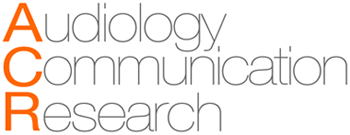ABSTRACT
Purpose
To compare the performance of preterm and full-term children in the expressive vocabulary assessment.
Methods
The vocabulary was assessed through the ABFW – Child Language Test in 40 two- to four-year-old children – 20 preterm and 20 full-term, matched for age and gender. The proper statistical tests were used, adopting the significance level lower than 5%.
Results
A statistical difference between the preterm and full-term groups was observed in the usual word designations (in the conceptual fields of clothing, furniture and appliances, and professions), in the no designations (in professions and places), and in the substitution processes (in clothing, professions, places, and shapes and colors).
Conclusion
A possible relationship between premature birth and difficulties in vocabulary development is suggested. The importance of early intervention in these cases is highlighted, to avoid or minimize consequences to language development and school achievements.
Keywords:
Language development; Child language; Child development; Language tests; Premature birth
